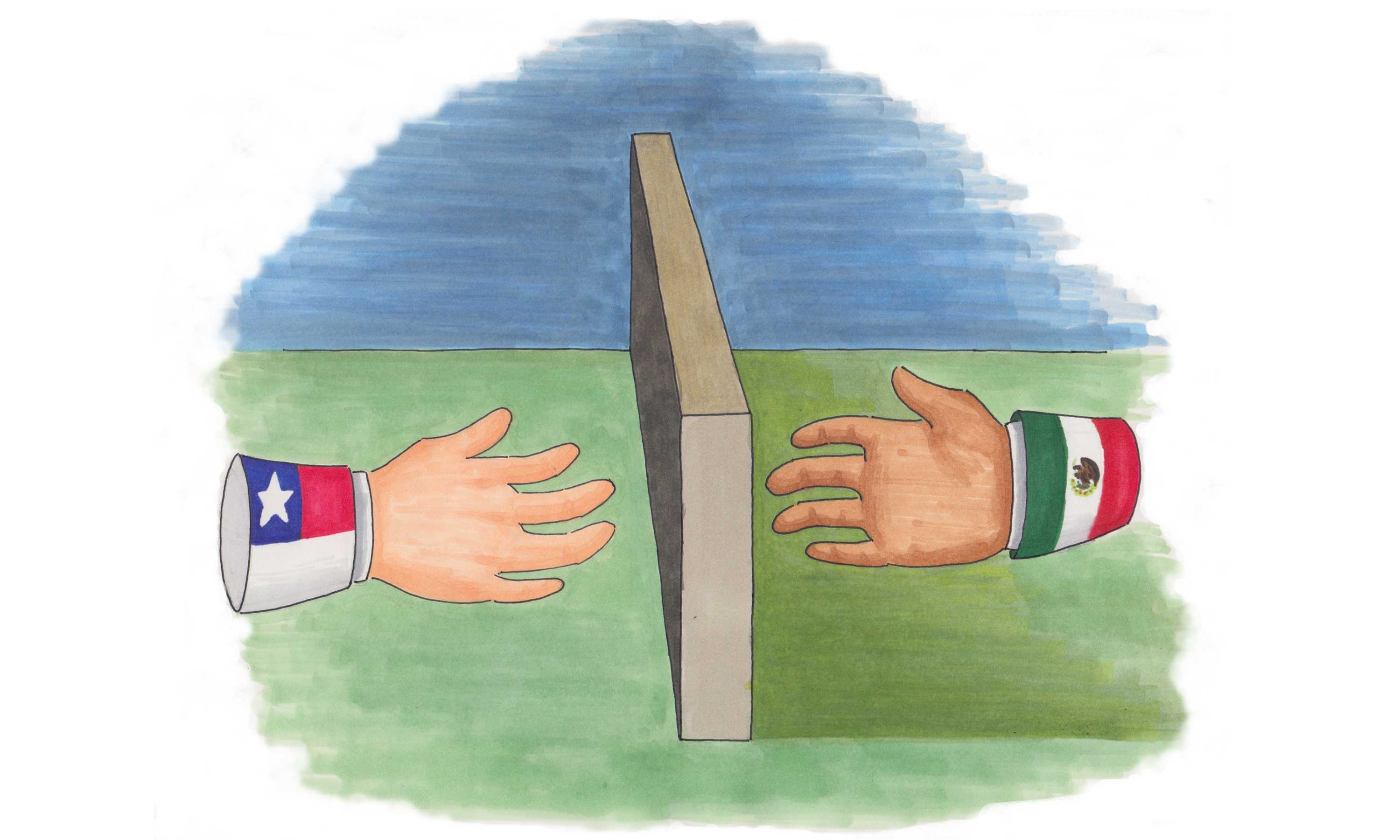Within a country that is associated with global acceptance and opportunity for a successful life, there is no doubt that illegal immigration is a growing problem; the United States Department of Homeland Security returned approximately 438,000 aliens to their countries in 2013.

Within a country that is associated with global acceptance and opportunity for a successful life, there is no doubt that illegal immigration is a growing problem; the United States Department of Homeland Security returned approximately 438,000 aliens to their countries in 2013. To combat this issue, presidential candidate Donald Trump has proposed that within his time in office, a wall would be constructed along the Mexico-United States border.
This plan is not a progressive step to take in the war against immigration due to it being prejudiced and unrealistic.
The cost of building the current 650 miles of fencing is $2.4 billion, while Trump’s proposed wall will span the total border of 1,989 miles (which he expects Mexico to pay for). “Mexico makes a fortune because of us, a wall is a tiny little peanut [in comparison],” Trump stated in an interview on CNN’s “State of the Union.” This harsh request for Mexico to use their budget on this wall is a rather insolent one.
Implanting border defense at such an expense is an effort that should not be solicited to the country that is the source of the income of population. The impact of immigration is primarily on the United States, therefore we should pay at least a part of the expenditure, as we are defending ourselves. We have the potential to simply allow all immigrants into our country, regardless of whether or not they decide to become residents, thus why should Mexico be blamed for people seeking a life in this country? Considering the ongoing war against drug cartels occurring within Mexico, money should be focused on resolving a conflict within their own country, rather than how their country affects another.
There is a ubiquitous and rather spurious idea within our nation that Mexico is the only country affected by this predicament, as it could be argued that it is Mexico’s fault and thus they should pay for Trump’s extortionate wall. However, the institution of this partition affects American citizens from all age groups as well. “Immigrants I believe, have, for a long time, fed our economy,” Foothill sophomore Timothy Bradshaw said. There is compassion and respect for our neighbouring country and the instigation of an immense divider will only disrupt that reverence between our nations, and people within our society are alarmed. “I think Mexicans and Americans would look at each other very differently,” Bradshaw added. “I think on a national level, America and Mexico would butt heads a little more.”
[soundcloud url=”https://api.soundcloud.com/tracks/222119122″ params=”color=ff0000&auto_play=false&hide_related=false&show_comments=true&show_user=true&show_reposts=false” width=”100%” height=”166″ iframe=”true” /]
Despite its flaws, the idea of a permanent wall to protect the United States from the dangers brought upon by immigration is favorable, especially in consideration of our increasing population. However, the cultural impact is a perspective not many have considered. A wall of such magnitude would certainly be a hostile symbol to Mexico, replacing the ideals of freedom we have displayed around the world.
Would that deflate the desire to immigrate into the United States? Yes. However, would it be worth the grim connotation that would reside with it? Envision those of Mexican heritage being associated with a colossal barricade between America and Mexico. This would only construct unwarranted prejudice towards Mexico and Mexican Americans, further separating the relationship between the two countries, including a country known for being ethnically and culturally diverse.
It has been observed with cases such as the Berlin Wall that separation can receive a negative reaction, and while immigration –both illegal and otherwise– is an issue that must be combated, it cannot be done with the cost, the prejudice and the impact of a blockade of mistrust.
The expense of this wall is vast, and while it may now only be hypothetical, there is still potential for it to be reality. The tension between Mexico would rise greatly if this method were used and would only harm our reputation with any country that observes our actions, especially considering how influential the United States is. Therefore, this idea should remain suppositional and alternative ideas should be pursued.














